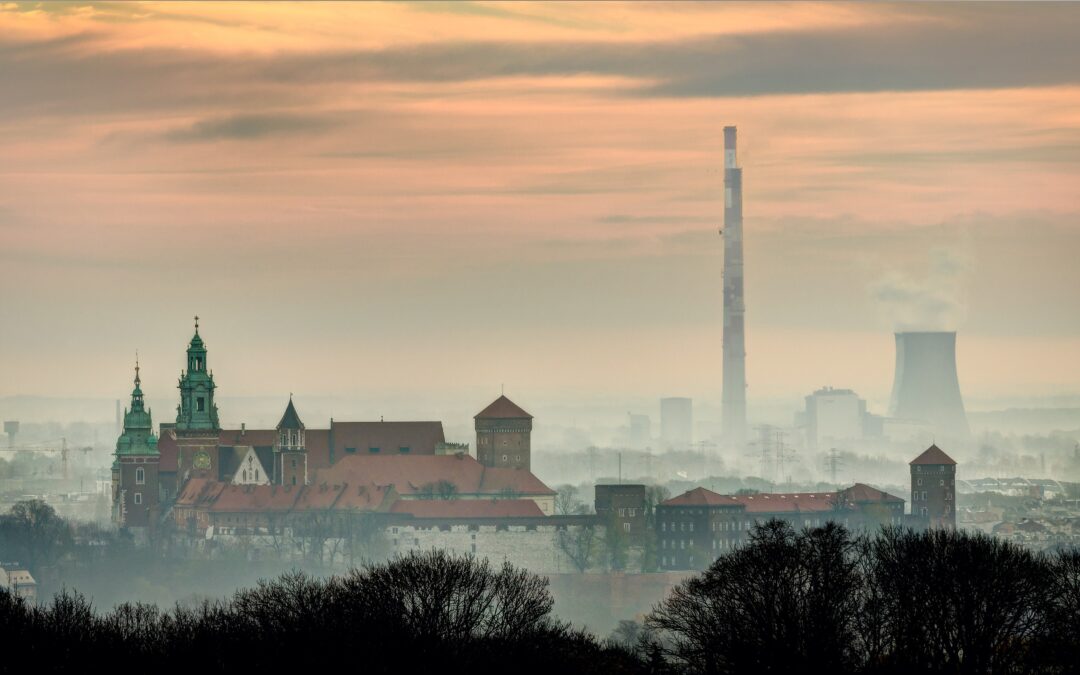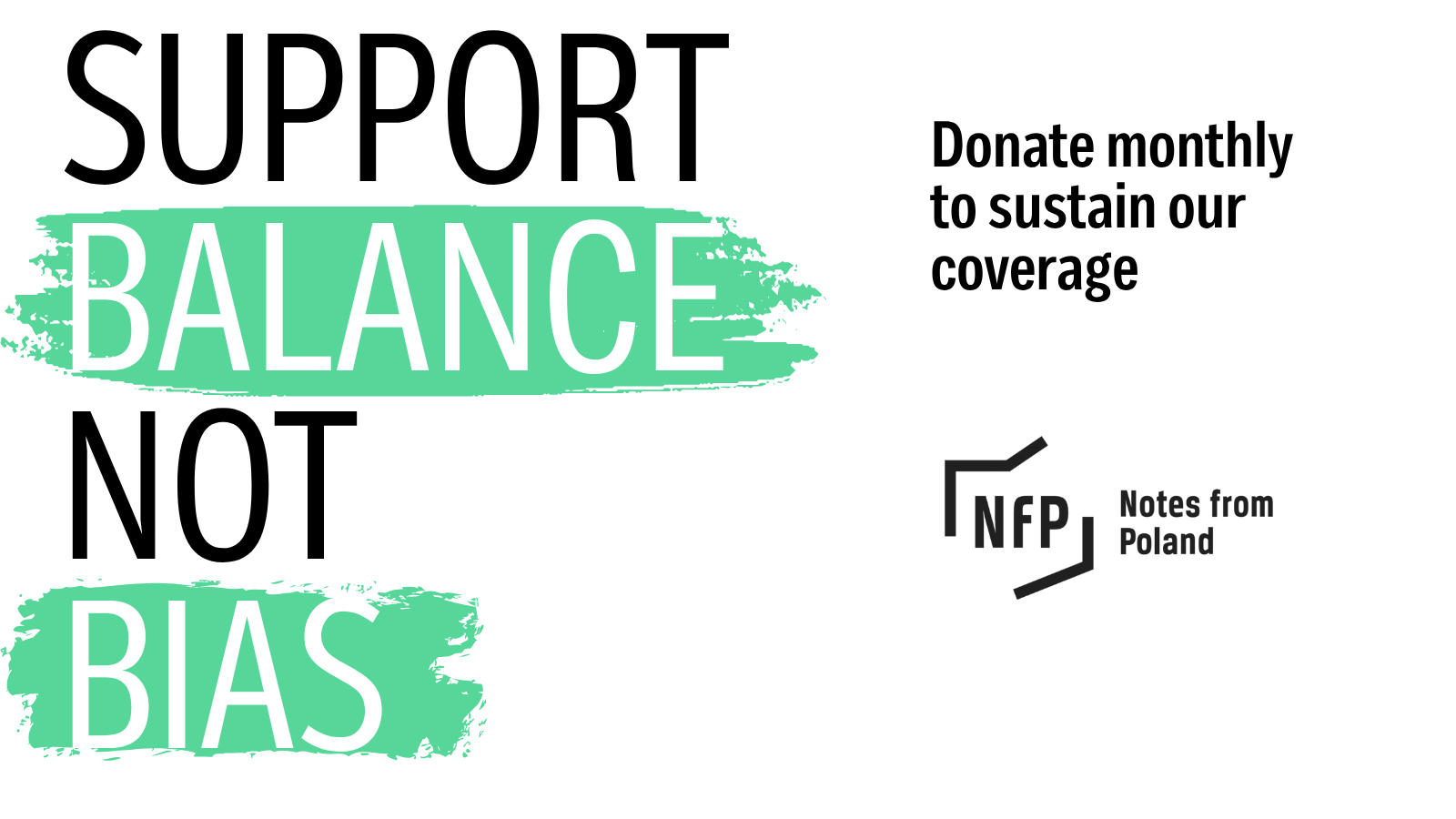Keep our news free from ads and paywalls by making a donation to support our work!

Notes from Poland is run by a small editorial team and is published by an independent, non-profit foundation that is funded through donations from our readers. We cannot do what we do without your support.
Poland’s government has celebrated its “success” in pushing the European Union to delay the introduction of a new system designed to limit emissions from household heating and vehicles.
However, it also today found itself among a losing minority of four member states that voted against setting a new EU target to cut emissions 90% by 2040.
On Wednesday, after negotiations between EU member states that had been taking place since Tuesday, the European Council announced that they had agreed to delay the introduction of the new so-called ETS2 system by one year, from 2027 to 2028.
“Pressure makes sense,” wrote Prime Minister Donald Tusk’s office. “This is another success for our government in talks with the European Commission.”
❗️Presja ma sens.
✅ To kolejny sukces Premiera Donalda Tuska i naszego rządu w rozmowach z Komisją Europejską.
📍Wprowadzenie ETS2, które oznaczałoby dodatkowe koszty ogrzewania i transportu, zostało odłożone, a system teraz czeka pełna rewizja. pic.twitter.com/hOpte4YARm
— Kancelaria Premiera (@PremierRP) November 5, 2025
The EU already has an Emissions Trading System (ETS) that uses a cap-and-trade mechanism to make polluters pay for emissions, which are gradually lowered over time.
While ETS is focused on electricity generation and heavy industry, ETS2 will mainly apply to emissions produced by heating buildings and road transport.
Poland, which has some of the EU’s highest levels of air pollution from home heating and vehicle emissions, has long expressed concern about ETS2. Last month, Tusk said that it would be “very disadvantageous for Poles”.
Warsaw, therefore, pushed for ETS2 to be delayed and revamped. In June this year, over a dozen member states, including Poland, wrote to the European Commission calling for the system to be reformed.
Today, the Polish government claimed that ETS2 has now not only been delayed but also that it “will also undergo a deep revision, and the principles will be changed”, in the words of climate minister Paulina Hennig-Kloska. That has not been confirmed yet by the European Council or Commission.
Deputy climate minister Krzysztof Bolesta said that Poland had “managed to knock the teeth out of the ETS2 system”. The climate ministry says that the European Commission will present a proposal for “comprehensive reform” of ETS2 by the end of this year.
Bolesata also noted that Poland had today voted against a proposed target for the EU to cut emissions 90% by 2040 compared to 1990 levels. That plan was, however, approved despite Poland’s objections.
Twenty-one member states voted in favour. Poland, the Czech Republic, Hungary, and Slovakia were opposed, while Belgium and Bulgaria abstained, reports the Polish Press Agency (PAP).
‼️ @EUCouncil agreed on a binding 90% emissions reduction target by 2040, as part of the EU’s path to climate neutrality by 2050 🌍
The target goes hand in hand with both 🇪🇺 competitiveness and just transition, ensuring support for EU citizens & industries.
More here ⬇️
— EU Council Press (@EUCouncilPress) November 5, 2025
The Polish climate ministry notes that the EU’s 90% target relates to the bloc as a whole – meaning not every country will have to cut by that much – and that it is subject to ongoing review and potential correction.
“We successfully persuaded our EU partners to…introduce a flexible target with revision clauses,” said Bolesta. “We are replacing rigid targets with a realistic and pragmatic approach.”
A number of environmental groups, including WWF, Climate Action Network Europe and Carbon Market Watch, have criticised today’s compromise deal as being too watered down. They urged the European Parliament, which must now negotiate the final text of the agreement, to push for it to be toughened.
By contrast, the spokesman for Poland’s national-conservative opposition party, Law and Justice (PiS), said that the measures announced today still go too far and will “seriously harm Polish interests”. He suggested that the government had “betrayed Poland’s interests”.
💬 Rzecznik PiS @RafalBochenek: Decyzję, które są podejmowane na posiedzeniu Rady UE bardzo mocno godzą w polskie interesy. To zdrada polskich interesów i oszustwo polskich obywateli. Kilka dni temu polskie media żyły takim przekonaniem, że system ETS2 miał być odłożony i… pic.twitter.com/lisEYUFIA9
— Prawo i Sprawiedliwość (@pisorgpl) November 5, 2025
Jakub Wiech, an independent energy analyst, called the postponement of ETS2 a “pyrrhic victory for Warsaw”.
“On the one hand, it showed that it is possible to negotiate the EU’s climate policy…[and] cleared the ground ahead of the 2027 [parliamentary] elections, when ETS2 was originally supposed to enter into force,” wrote Wiech.
“But at the same time, Poland still either has no mechanisms at all to prepare for ETS2 (as in transport) or has non-functional ones (like the Clean Air programme),” he added. “And it is precisely Poland that will be hit the hardest economically by this system.”
Przesunięcie ETS2 to jednak pyrrusowe zwycięstwo Warszawy.
Oczywiście polski rząd ma powody do zadowolenia: z jednej strony pokazał, że da się negocjować z unijną polityką klimatyczną, z drugiej strony: oczyścił sobie przedpole przed wyborami w 2027 roku, kiedy to pierwotnie w… pic.twitter.com/M8NYq6VcYT
— Jakub Wiech (@jakubwiech) November 5, 2025

Notes from Poland is run by a small editorial team and published by an independent, non-profit foundation that is funded through donations from our readers. We cannot do what we do without your support.

Daniel Tilles is editor-in-chief of Notes from Poland. He has written on Polish affairs for a wide range of publications, including Foreign Policy, POLITICO Europe, EUobserver and Dziennik Gazeta Prawna.




















